So, you think sheep are pretty cool, and yes, I think so too, or I would not have them.
Have you ever raised sheep before? Or any livestock?
If not, please keep reading before you make the big jump.
First and foremost, what is your end goal for having sheep? Meat? Milk? Fiber? A combination? Something to clean up the weeds in your yard? A fuzzy buddy for your kids?
Once you have decided those factors, now you have to determine if you have adequate space and shelter for them. Can your land sustain them for grazing? Will you need to invest in hay for 6 or more months a year? Is your land fenced for sheep? Do you have close water for them? What do your local zoning laws say about livestock? What does your predator load look like? Can you be home all the time to take care of them? Do you have access to someone who can take care of them if you need to go out of town? Livestock are a 24 hour a day deal!
Do you want to try and make money from your sheep? What product are you offering? Have you looked into your local cottage food laws so you know what you can and cannot legally sell?
If meat, will you do the butchering? Do you have a local processor and how far out are their appointments? Do you have a customer base in your area or do you plan to send them to a sale barn? Do you have enough freezer space?
Meat sheep breeds are split between wool and hair sheep. Cheviot, Charollais, Katahdin, Icelandic Sheep, Tunis Barbari, Welsh Mountain Sheep, Shropshire, Texel, Dorset Horn, Hampshire Down, Rambouillet, Dorper are the most common breeds.
If milk/dairy, again check your cottage food laws to see if you can sell directly off your property or do you have to go the whole FDA inspection route. Do you have a space for milking and processing the milk?
Milk/Dairy breeds, British Milk Sheep, East Frisian, Lacaune Sheep, Assaf Sheep, Finnsheep, Katahdin Sheep, Chios Sheep, Sarda Sheep, Icelandic Sheep, these are the most popular
Fiber. There is a market for just about every kind of fiber from hand spinners/weavers. So who do you want to appeal to? Do you have access to a professional traveling shearer or will you do that yourself (please take a class!!!)? Will you send your fleeces to a mill for processing, and have you spoken to one? Will you sell raw fleeces? Can you skirt and class your wool?
Fiber breeds are many! They run the gamut from coarse wool, to fine wool, to long wool, and points in between. Merino, Rambouillet sheep, Suffolk sheep, Corriedale, Leicester Longwool, Lincoln sheep, Shetland sheep, Romney sheep, Targhee sheep, Dorset Horn, Cormo, Debouillet sheep, Southdown sheep, Columbia sheep, Finnsheep, Wensleydale sheep, Border Leicester, Cotswold sheep, Bluefaced Leicester, Polypay, Teeswater sheep, Delaine Merino, Navajo-Churro, Polwarth sheep, Karakul sheep, Cheviot sheep, American Tunis, Jacob sheep, Black Welsh Mountain sheep, Coopworth, Comeback sheep, Clun Forest sheep, Masham, Gulf Coast Native sheep, California Red sheep, Manx Loaghtan, Montadale, Romeldale, Gotland sheep, Soay sheep, Whitefaced Woodland, Dorset Down, Drysdale sheep, Fjällnäs sheep, Castlemilk Moorit, Lohi sheep. Just to name a few! LOL
As you look at these lists, you will see many of the same breeds on two or more lists. These are considered dual purpose breeds, so you get 2 for the price of one!
Each breed has different characteristics in size, temperament, fiber quality, meat/carcass quality, milk quality, and you need to do your own research to determine which breed will work best for you, your area of the country, and land that you have.
Do you have a local shepherd, or know one online, who can mentor you? Have you spent any time on a sheep outfit to learn firsthand? This is an invaluable person to have on your side. I mean it, they are worth their weight in gold for the experience they have garnered over their time as a shepherd. It can save you countless trips to the vet, over medicating, and even over thinking the problem you run into. Find one and ask questions!!! Learn from their mistakes (yes we make them), and save yourself and your animals heartbreak.
Sheep cost money. Sometimes lots of money. Especially if you have to have multiple veterinarian visits. Make sure you have a good large animal vet in your area and you create a good working relationship with them. Don’t wait until you have an emergency before finding one. I strongly suggest you make an appointment with them and sit down to talk to them before you have sheep as to your goals, and what services they offer towards sheep. ie farm visits, flock vaccination, antibiotics/meds, surgery, mobile surgery or office, emergency on call visits, etc. There is a decided lack of large animal vets in this country right now, so finding one may be an issue for you.
They say sheep are born looking for a place to die, and to a certain extent, yes it’s true. I worked in EMS for a while before I became a shepherd, and that experience taught me that children in distress will compensate for a really long time before they crash. Sheep are the same way. They will compensate for being sick to hide it from potential predators for a long time then just crash. You need to watch your sheep to learn what is normal behavior vs abnormal. This will allow you to intervene long before they crash and get to a point where they cannot be saved.
While they are not exactly the sharpest knife in the drawer, I have found sheep are remarkably smarter than most people give them credit for. Do you know that they can recognize up to 50 faces of other sheep and people, for five years, even if they don’t see them for a long time? They are also really good at recognizing voices and sounds. And they are teachable, mine come back to the corral when I go out and whistle for them. Giving them treats is excellent reinforcement for that goal
National Geographic Sheep Facial Recognition
If you are squeamish about blood, or other bodily fluids, this may not be the line of work for you. As a shepherd you will, by necessity, be forced to deal with giving shots, blood, busted horns, broken hooves, prolapse’s, broken teeth, split ears, cuts from trees, fences, shearing, pneumonia, abscesses, fighting rams, banding tails, banding balls, tagging ears, worms, birth, death, and any one of a million other issues that will creep in. Having prepared medical supplies will be a major boon to keeping your animals alive.
Sheep are flock animals, meaning they do not do well when they are alone. If you plan on getting sheep, you need to invest in 2 or more at the time of purchase. Trying to pair a single sheep with a different species of animal on your place will not always work. Sheep and goats do not always get along. Cows and horses are good at kicking sheep. Sheep and dogs, raised together, can make a good pairing, but make sure the dog will stay outside with the sheep. Livestock Guardian Dogs can make excellent companions. Sheep will always be happier with one of their own around no matter what.
If you plan on breeding your sheep, that will mean you need a ram. Rams can present a whole different range of problems for you. Rams can be mean, they can hit you and stomp you into the ground on a whim, they are big, strong, and they know it. A ram raised as a bottle baby/house pet will not make an easy-going ram for you to deal with once the testosterone kicks in at 6-ish months of age. When you contact breeders to buy your stock, ask for rams that are of good, quiet, temperament. Still, you may end up with one that just hates everyone. Again, they need a companion, even if it’s a wethered male for him to hang around with. My three rams live in their own corral and usually get along well with each other. They do have their moments of trying to knock each other down, and I do my best never to turn my back on them if I’m in their space.
A note on “borrowing” a ram from a neighbor. Its not always something that people will do. The reason? Your flock, or theirs, may have a disease that is easily transmittable. You don’t want to take your ewes to another farm and have them come back sick. Conversely, you really don’t want to be responsible for transmitting a disease to someone else’s flock. My flock is closed simply due to biosecurity. I don’t travel with them outside of a vet visit. I don’t show my sheep. I keep any new purchases in quarantine for 2 weeks, and any new stock comes with a vet visit prior to purchase. Not everyone is as diligent about keeping animals healthy as you may be.
Take these questions and really decide if this is the choice for you. Be honest with yourself. Not everyone is cut out to raise livestock, nor do they have the space to raise them in. These questions and subsequent paragraphs can apply to all forms of livestock you may be considering. Don’t sugarcoat your answers to satisfy an itch you may be feeling. You don’t want to make what can be very costly mistakes.
If you are considering livestock of any sort, and this article has raised questions for you, please feel free to ask in the comment section and I will do my best to answer them for you or direct you to a resource that can help you.
Livestock can be lots of fun to have, they can also be a ton of work. And they can and will break your heart.
Blessed Be!

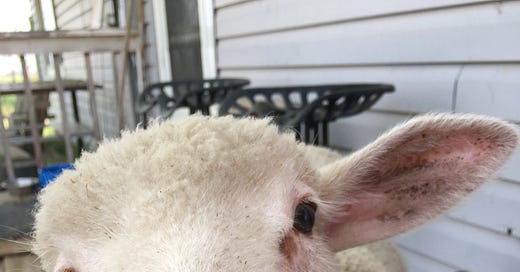



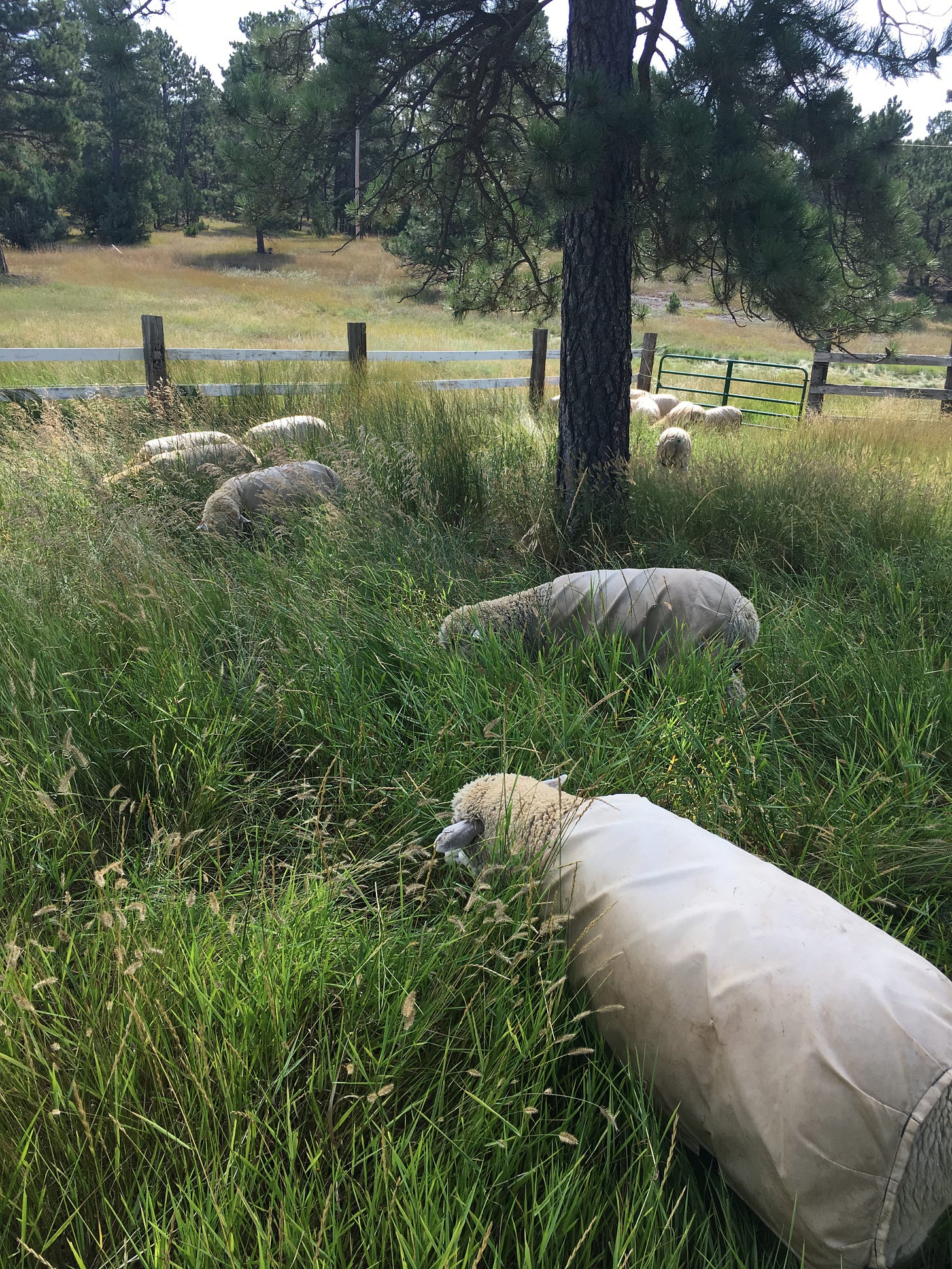
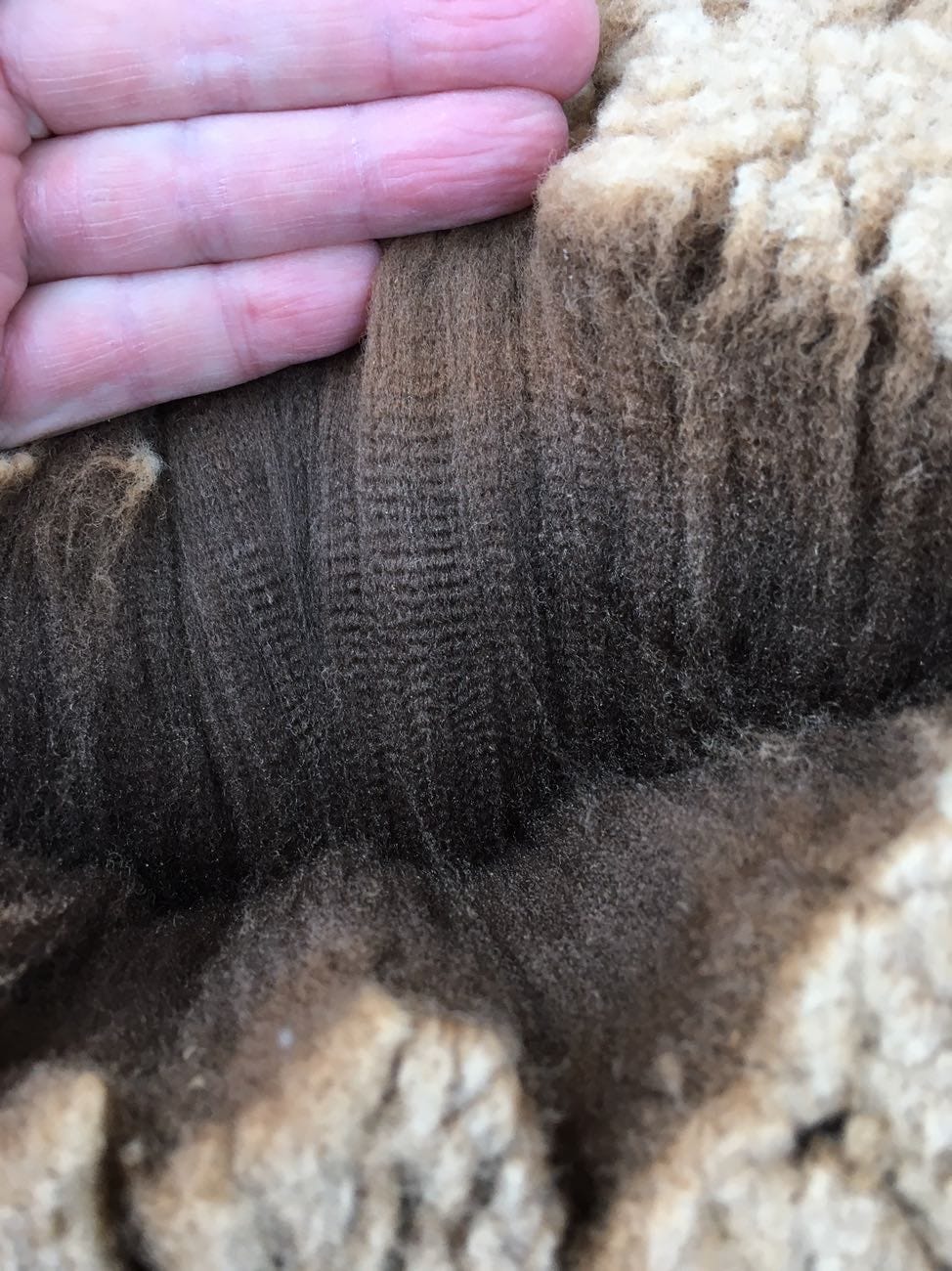
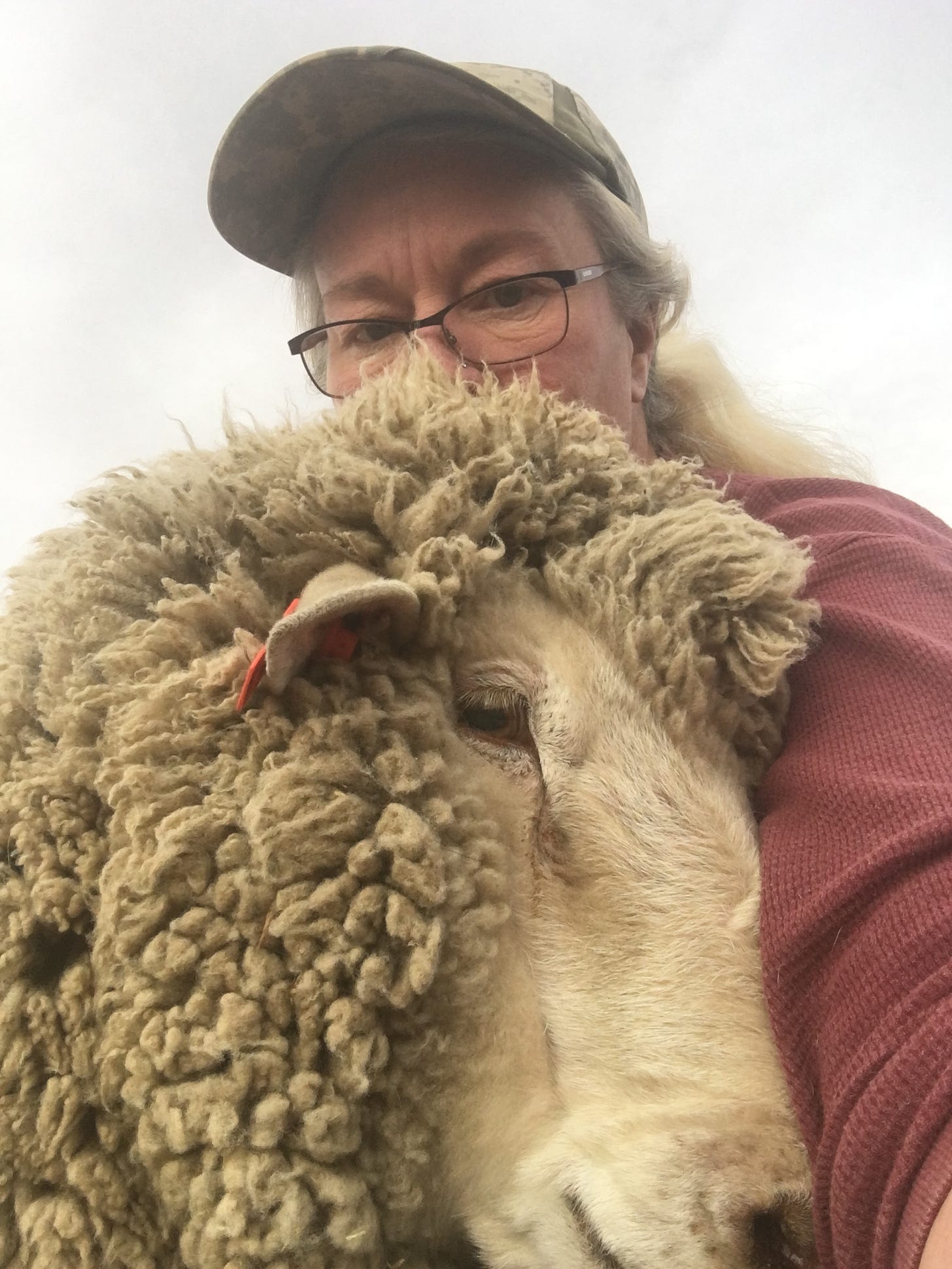
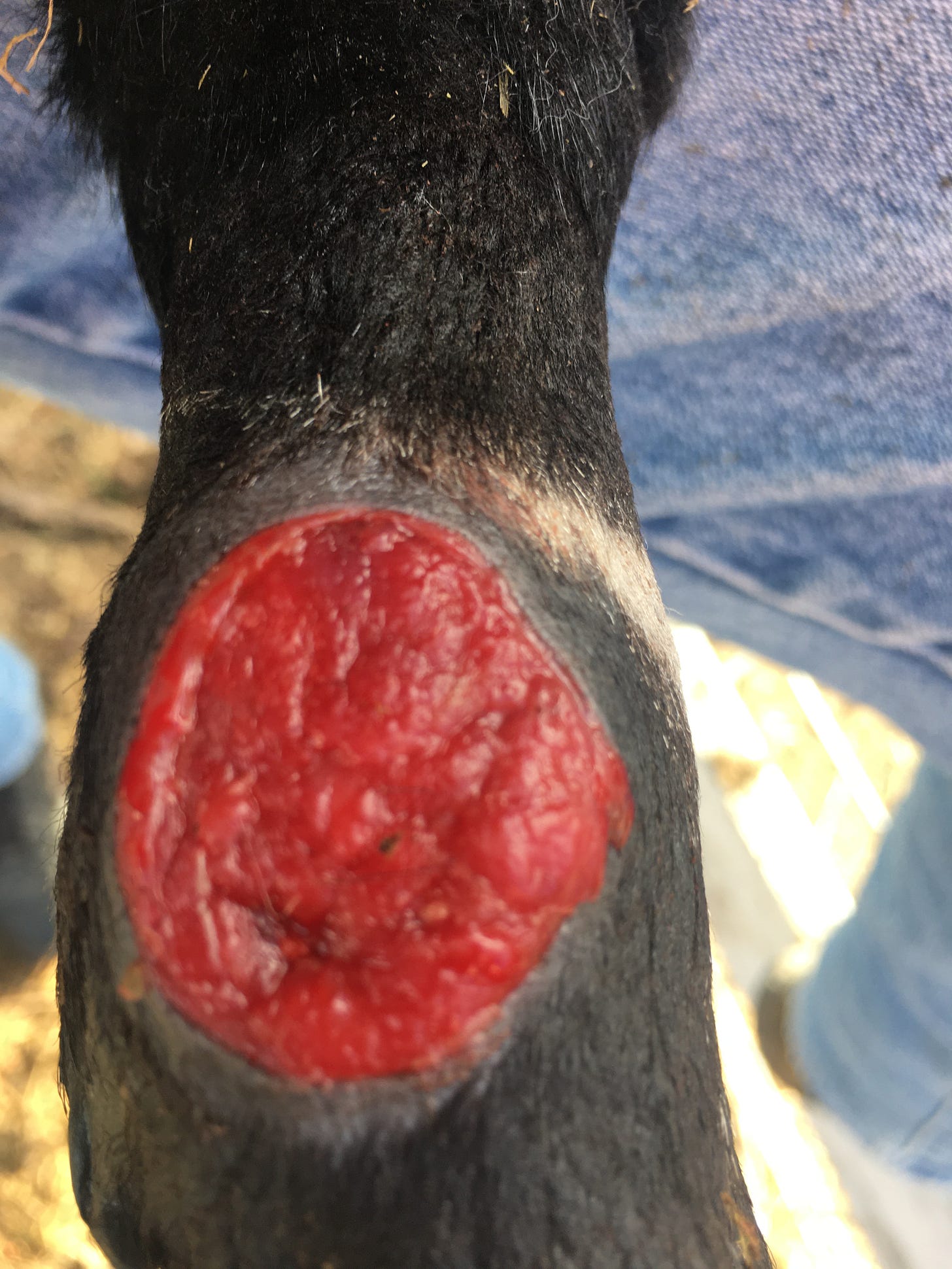

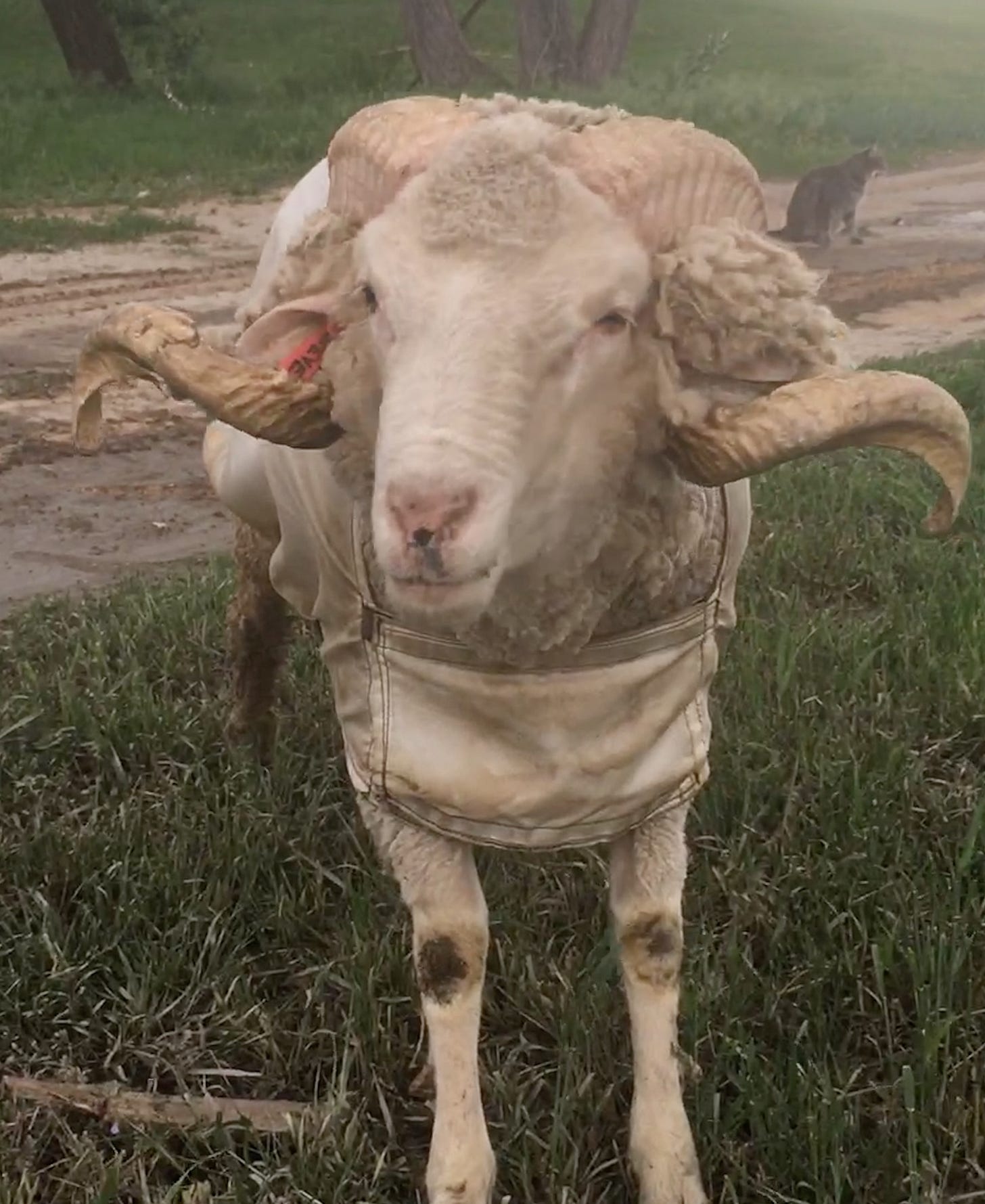
I got it. Reloaded this contact. Good to go.
Thanks for posting this thread on Mewe.......grrr nothing from Substack.
Your message was so spot on, that it should be mandatory reading for anyone thinking of becoming a rancher of any animal. Good grief, dogs keep me 'tied down' but at least there are kennels, they have been fixed so no birthing responsibilities, and can load them into my car for a vet check. But they also have to really know what they are raising, and it can't be just for the cute factor. My beef is with people that buy purebred dogs and don't know what they are born to do. I have been owned by 6 Airedales, but I know what they do and need. They need room to romp, they need to be with people, they dig holes and love to kill cats, squirrels, rabbits, beavers and chickens. Oh my God as puppies they are too cute to resist, but they can grow to be 50-100 pounds of terror terriers. They are smarter than me and are hilarious! So off to puppy daycare to learn to be socialized, and an attempt to train them is always tried. After three years, these two will be quiet most of the day. But at around 8 in the morning and 5 at night they go into psycho mode and run around for 10 minutes chasing each other, running in circles through the house, in and out of the doggie door, up and down stairs, and you better not be in their way during these 10 minutes or they will knock you down because they have become possessed and don't see you. Then you hear a thud-plop and it is over as fast as it started.
Animals are gifts, but you better read the instruction manual before you get them.